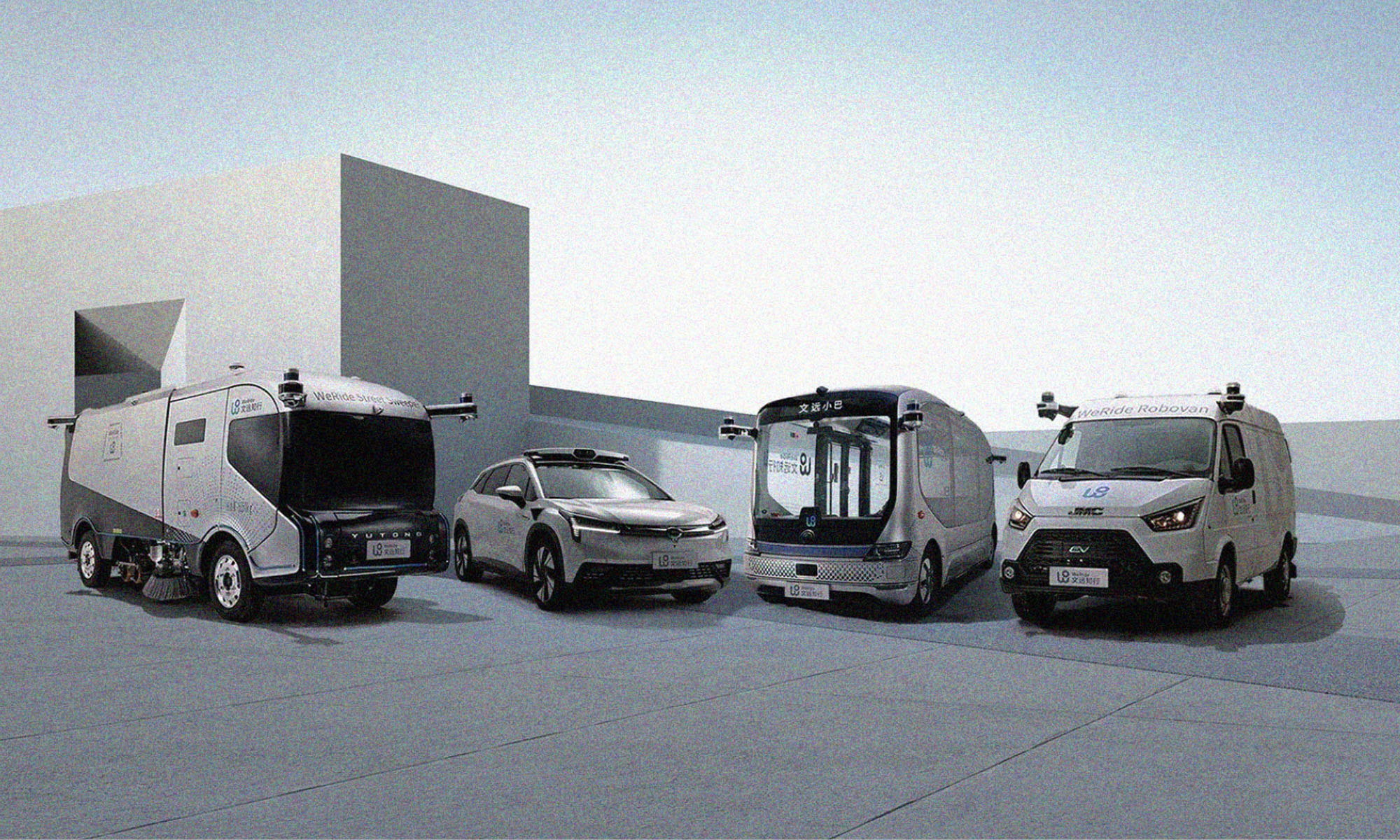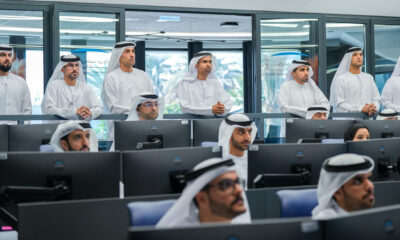News
WeRide Granted First Self-Driving Vehicle License In UAE
The Chinese autonomous driving company may soon deploy robotaxis and robobusses across the Emirates and beyond.

Chinese autonomous driving startup WeRide was the first company in the world to hold driverless permits for testing in both China and the USA. Now, the autonomous technologies experts have secured a license to deploy self-driving vehicles in the UAE, having already completed public testing on some routes within the Emirate.
Sheikh Mohammed bin Rashid Al Maktoum, Vice President and Prime Minister of the UAE and Ruler of Dubai, announced the news on Twitter: “We approved the first national license for self-driving vehicles on the country’s roads, which was granted to a specialized WeRide company”.
Dubai aims to make 25% of its transportation completely autonomous by 2030, so the permit comes at an ideal time. Last month, as part of the Eid al-Adha holiday services, the Integrated Transport Centre (ITC) of Abu Dhabi announced that visitors to Saadiyat and Yas Islands could experience free autonomous driving car rides, including a vehicle called “TXAI”, which was launched by WeRide in partnership with a local company Bayanat.
Also Read: UAE’s du Teams With Huawei For Net-Zero Telecom Services
WeRide has developed its state-of-the-art technologies through WeRide One, which the company describes as a “one-for-all and all-for-one platform for urban autonomous driving applications. Designed with high flexibility on both the software and hardware levels”. The platform uses self-evolving deep learning systems to prioritize safety, plus AI algorithms and a fusion of camera, LiDAR, and radar to replace human operators.
In a recent press release WeRide said, “In the future, WeRide will continue to deepen its presence in the Middle East region and bring high-quality autonomous driving technology, products, and services to more customers and consumers”.
News
Alienware Just Announced Six New Gaming Monitors
The new models include three QD-OLED and three budget-friendly QHD options, expanding the company’s lineup for all gamers.

Alienware has just updated its gaming monitor lineup with six new additions, including the highly anticipated Alienware 27 4K QD-OLED Monitor. The latest wave of releases is set to reach more gamers than ever, offering high-end QD-OLED displays alongside more budget-friendly options.
The latest displays clearly show that the company is doubling down on QD-OLED with three new models sporting the technology. A redesigned Alienware 34 Ultra-Wide QD-OLED Monitor is also making a return, further refining what is already a fan-favorite display.
A Unified Design: The AW30 Aesthetic
All six monitors feature Alienware’s new AW30 design language, first introduced at CES. The AW30 aesthetic brings a futuristic, minimalist look that unites the entire lineup under a cohesive visual identity.
Pushing QD-OLED Even Further
The refreshed Alienware 34 Ultra-Wide QD-OLED Monitor (AW3425DW) builds on its predecessor’s success with a 240Hz refresh rate (up from 175Hz) and HDMI 2.1 FRL support. It also gains G-SYNC Compatible certification alongside AMD FreeSync Premium Pro and VESA AdaptiveSync, ensuring ultra-smooth performance. With a WQHD (3440×1440) resolution and an 1800R curve, this display enhances immersion for both gaming and cinematic experiences.
For those who crave speed, the Alienware 27 280Hz QD-OLED Monitor (AW2725D) pairs a high refresh rate with QHD resolution, balancing sharp visuals with ultra-smooth gameplay. Meanwhile, the Alienware 27 4K QD-OLED Monitor (AW2725Q) delivers stunning clarity with an industry-leading pixel density of 166 PPI, making it the sharpest OLED or QD-OLED monitor available.
Also Read: Infinite Reality Acquires Napster In $207 Million Deal
Worried about OLED burn-in? Alienware’s entire QD-OLED lineup comes with a three-year limited warranty covering burn-in concerns, offering peace of mind for gamers investing in these high-end displays.
Bringing QHD To A Wider Audience
Alongside QD-OLED, Alienware is also releasing three new QHD gaming monitors aimed at more price-conscious gamers. The Alienware 34 Gaming Monitor (AW3425DWM), Alienware 32 Gaming Monitor (AW3225DM), and Alienware 27 Gaming Monitor (AW2725DM) provide a range of sizes and formats to suit different preferences:
- The Alienware 34 Gaming Monitor (AW3425DWM): An ultrawide (WQHD) option for a panoramic, immersive experience.
- The Alienware 32 Gaming Monitor (AW3225DM): A standard 16:9 panel for a traditional but expansive desktop setup.
- The Alienware 27 Gaming Monitor (AW2725DM): A 27” display offering the same performance in a more compact form factor.
All three gaming monitors feature a fast 180 Hz refresh rate, a 1ms gray-to-gray response time, and support for NVIDIA G-SYNC, AMD FreeSync, and VESA AdaptiveSync to eliminate screen tearing. Additionally, with 95% DCI-P3 color coverage and VESA DisplayHDR400 certification, these displays deliver vibrant colors and high dynamic range for lifelike visuals.
























